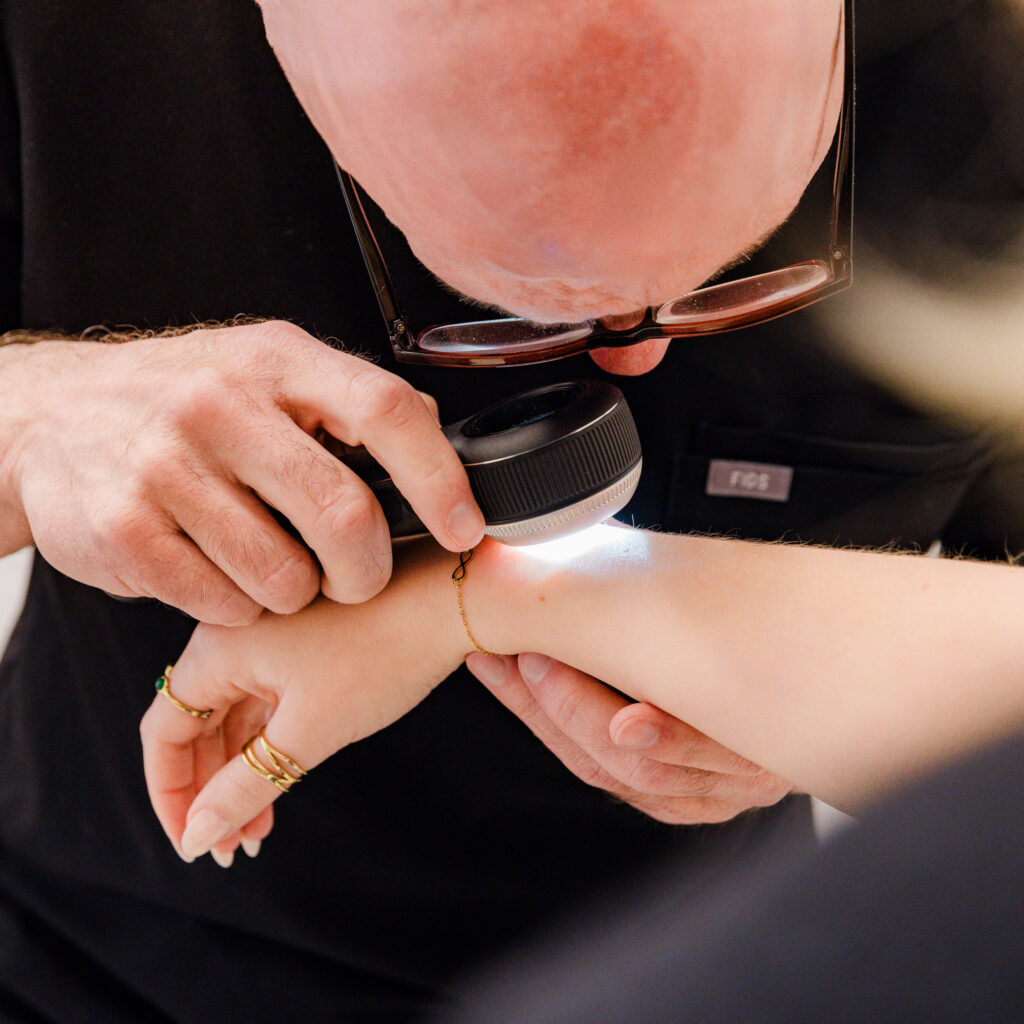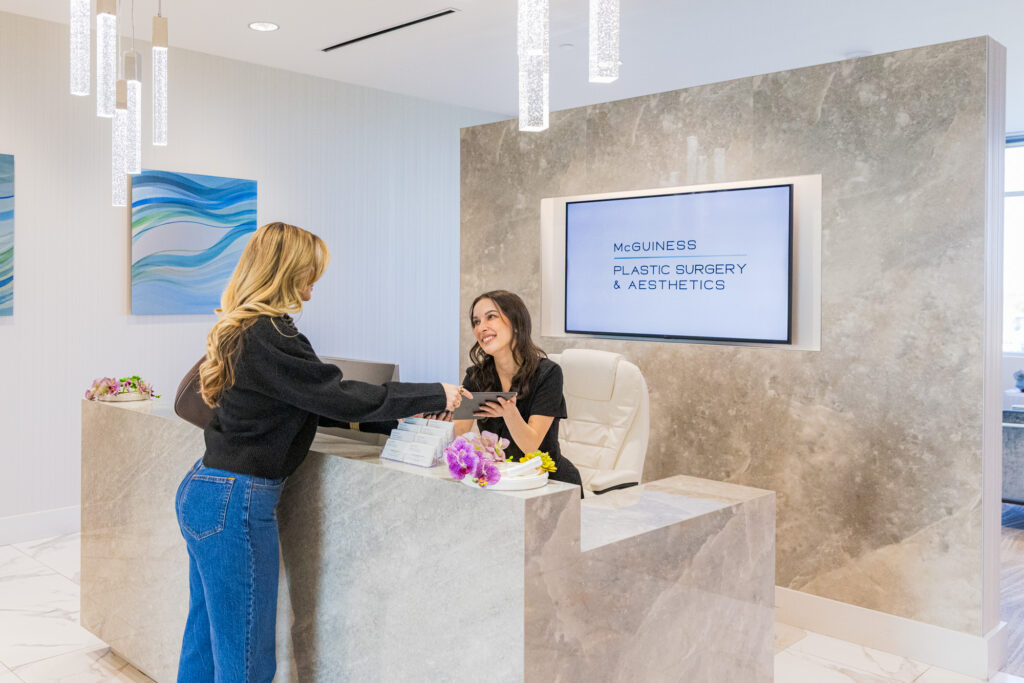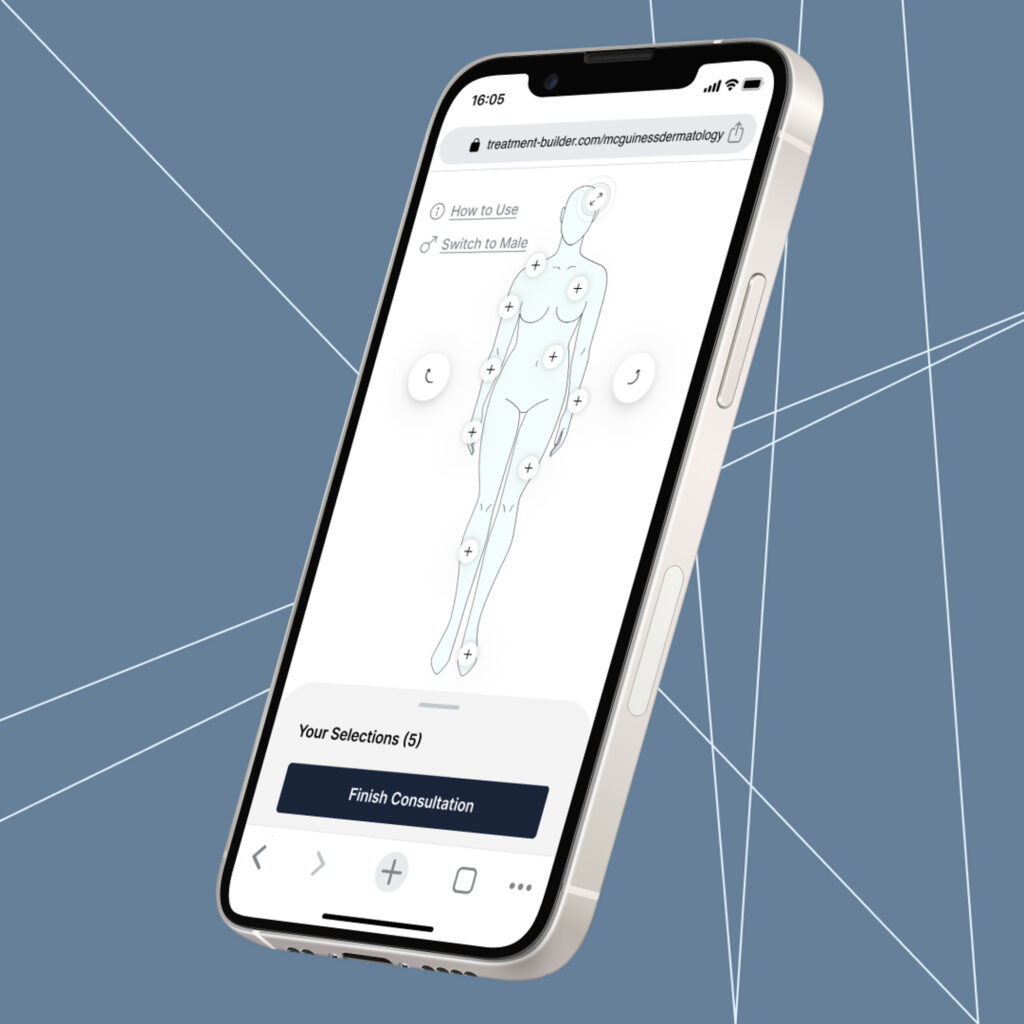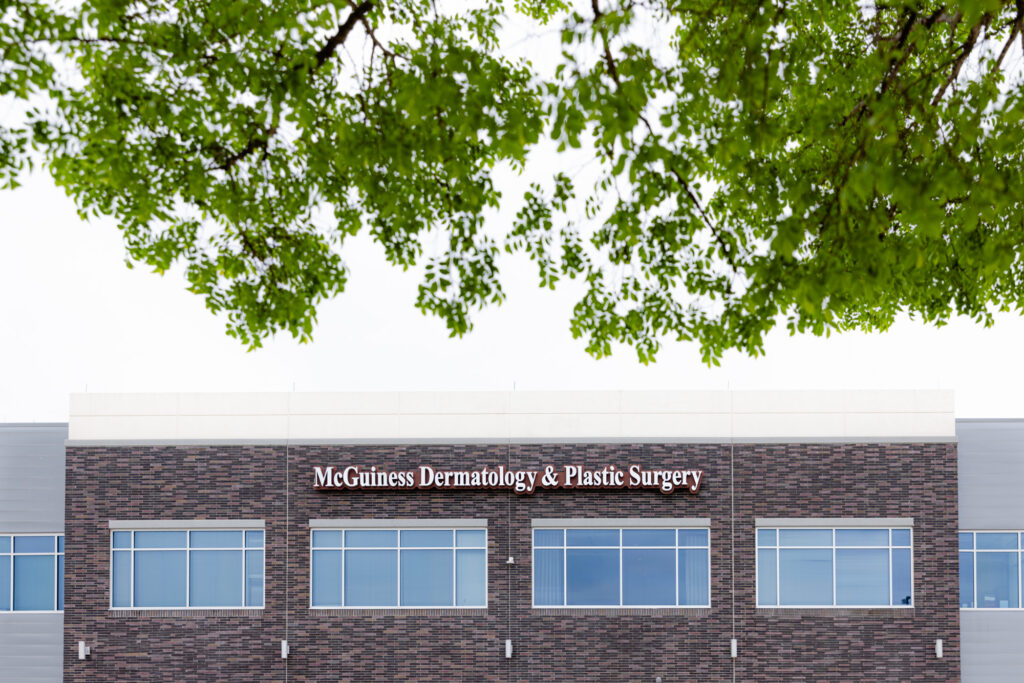
At McGuiness Dermatology & Plastic Surgery, our skin treatment clinic in Plano, focuses on the medical and aesthetic concerns of our patients. With an emphasis on detection, treatment, and prevention, we help patients of all ages feel confident in their skin and maintain its health.
Our goal is patient education on skin conditions and their treatments, encompassing everything from acne and skin cancer to chronic diseases like rosacea and psoriasis.
Before we discuss common skin treatments and services we offer, let us tell you why you should choose McGuiness.
Why Come to McGuiness Dermatology & Plastic Surgery?
Dr. Michael McGuiness, the founder and board-certified dermatologist of McGuiness Dermatology & Plastic Surgery, has spent over 2 decades building relationships with Texas residents. As the awareness and need for skin health education grows, so does our dermatology center.
Our 6 locations in the Dallas-Fort Worth metroplex boast a team of carefully selected professionals, each chosen by Dr. McGuiness based on credentials like board certification, experience, and commitment to patient care. No matter where you are in Texas, if you visit McGuiness Dermatology, you can trust your skin health with a staff of knowledgeable experts who have dedicated their lives to understanding over 3,000 skin diseases and conditions and how to treat them.
These concerns and conditions range in severity from minor to life-threatening. As your trusted skin treatment clinic in Plano and beyond, we continuously strive to deliver comprehensive and personalized care.
Common Skin Concerns
We commonly get inquiries regarding skin cancer, acne, and rashes. Here, we’ll cover detection, treatment, and prevention options for these conditions.
Skin Cancer
The most common cancer diagnosed in the United States is skin cancer. It’s also preventable and highly treatable. Skin cancer develops during the cellular regeneration process—when new, healthy skin cells replace old, damaged ones.
UV rays from the sun or tanning beds accelerate this process, causing rapid cell growth and the formation of abnormal skin cells. Skin cancer can spread if not caught early enough, which is why we recommend annual skin checks, so we can stop it from spreading.
Detection
In addition to yearly skin checks with your dermatologist, you can also keep an eye on your skin health at home. Using the helpful ABCDE rule, you can determine if a new lesion or mole is benign (noncancerous) or something to be worried about. Here are the signs of skin cancer:
- Asymmetry – The two halves of your mole don’t mirror each other; one side looks unusual.
- Border – Blurry shaped edges may indicate that you need to visit a skin treatment clinic in Plano.
- Color – Most moles will have just 1 uniform color. A cancerous mole will have varying shades of pigment.
- Diameter – A large mole, one that is bigger than an eraser on a pencil.
- Evolving – A mole that continues to change, often evolving from flat to raised or scabbed.
During a skin check, we will assess the area of concern, and the rest of your body, to determine if your growth is cancerous or not.
Treatment
For skin cancer, we perform Mohs Surgery, a surgical procedure that involves repeatedly removing thin layers of skin where the cancer appeared.
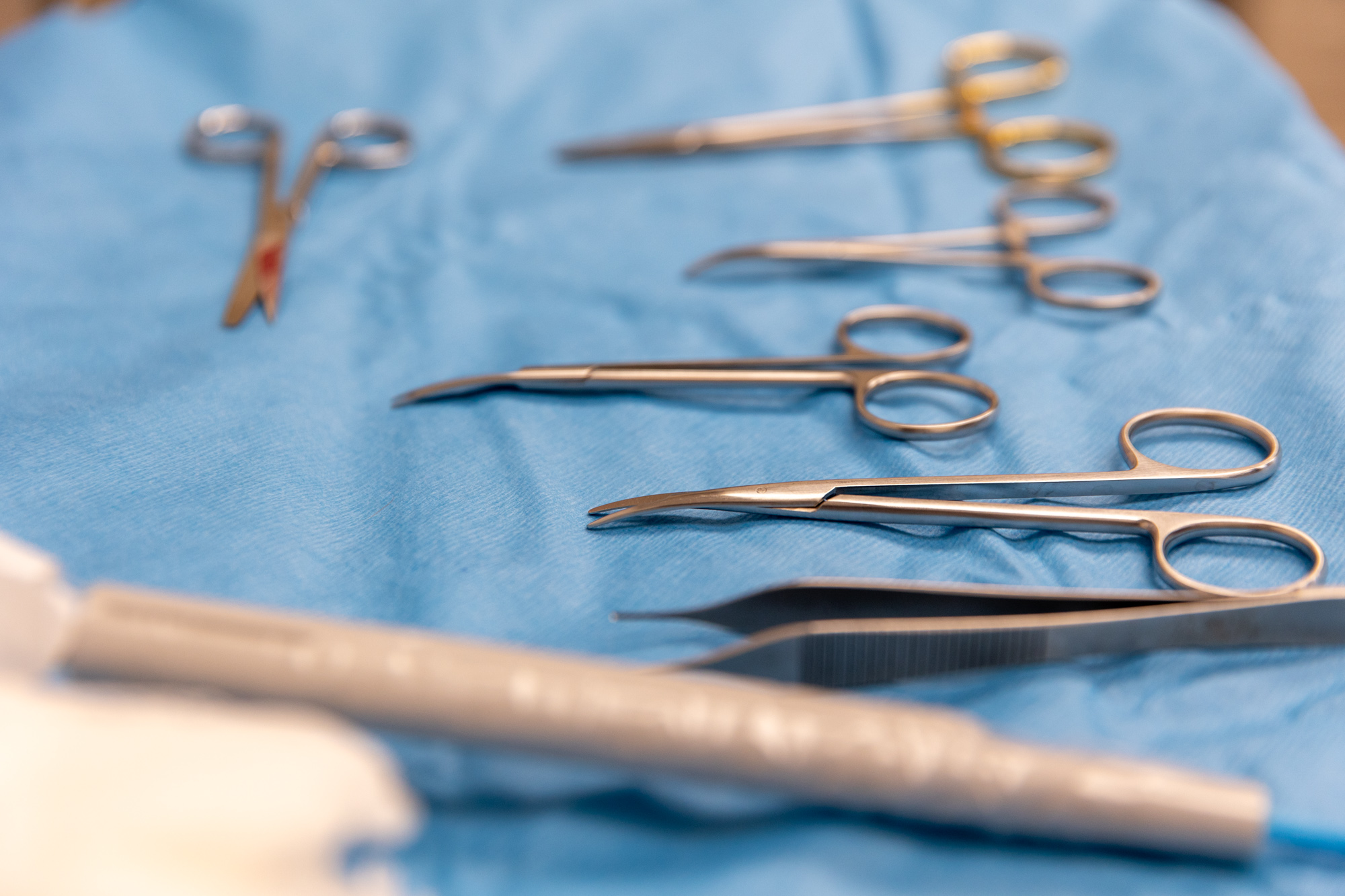
With each layer, your surgeon examines the tissue under a microscope until only cancer-free tissue remains.
Prevention
The best way to prevent skin cancer is to avoid direct sun exposure, and not only wear sun screen, but also reapply it as directed. Other factors, like having a weakened immune system, exposure to certain chemicals, and a family history of skin cancer, can raise your risk of developing this condition. That’s why even if you avoid the sun, we still recommend annual skin checks.
Treatment Locations
We can perform skin checks in all 6 locations to detect or diagnose skin cancer. However, we only perform Mohs surgery at our Plano location.
Acne
Our dermatologists are board-certifiedpimple specialists, dedicated to helping you achieve clear skin. When you come to our skin treatment clinic in Plano, we help determine the type of acne you have, what’s causing it, and the best acne treatment for you. This skin condition forms when an accumulation of dead skin cells or increased sebum production clogs your pores, producing a range of different pimples.
Detection
We start by assessing your skin to identify the type(s) of acne you have:
Treatment
Your treatment depends on your acne type. We prescribe pharmaceutical products that are more effective than over-the-counter options. These may include topical creams or gels, oral medications, or other acne treatments.
Prevention
In some cases, diet, stress levels, and even skin care products can contribute to acne. During your skin check, a dermatologist will discuss lifestyle changes you can make to promote and maintain clear skin. Following this advice works in tandem with the products and/or medications you’re prescribed.
Treatment Locations
We offer general acne treatments at all 6 of our locations, so you can receive the products you need at your convenience.
Three of our six locations also provide aesthetic treatments such as chemical peels, laser treatments, and Hydrafacials—which we strongly recommend for cystic pimple treatment. In this case, we may direct you to go to our skin treatment clinic in Plano, Prosper, or Flower Mound. These clinics offer scar revision services as well.
Rashes
You should always visit a dermatologist for a rash. While some are non-threatening and only require ointment. Others are chronic, contagious, or infectious. We recommend visiting our skin treatment clinic for a proper diagnosis.
Detection
A rash is not always hard to detect on yourself; you usually feel the irritation before you see the red bumps appear. Our dermatologists assess the itchy area of skin and categorize it based on whether it is infectious or non-infectious.
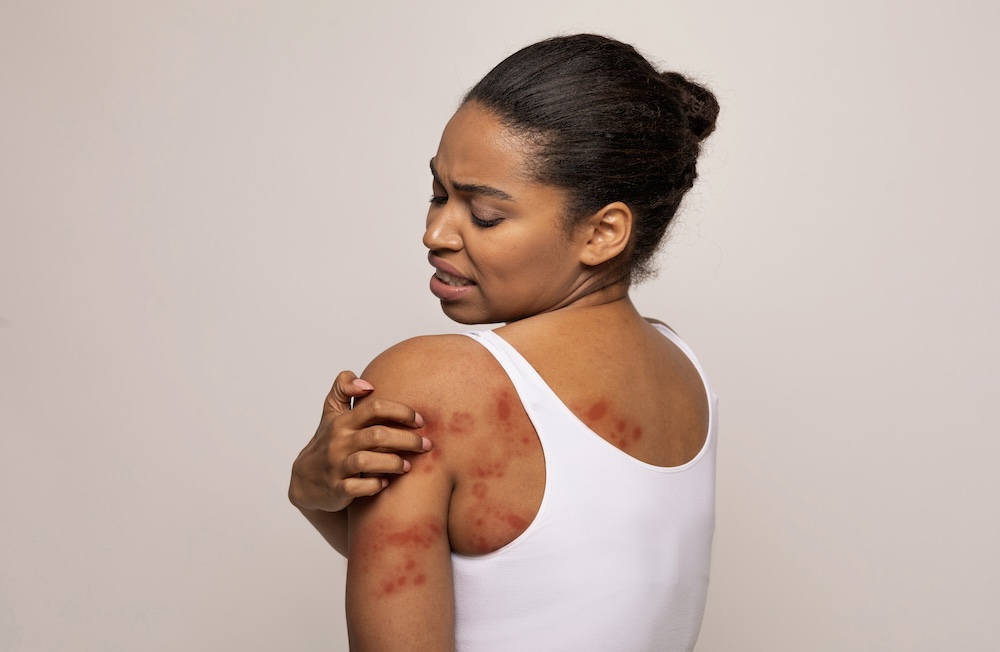
Infectious rashes result from bacteria or fungi invading the skin. They can include shingles, ringworm, athlete’s foot, and scabies. These types of rashes are not life-threatening, but briefly life-altering. The persistent itching can keep you awake at night and can sometimes be accompanied by pain, embarrassment, and burning sensations.
Infectious rashes appear in different forms, depending on the type of rash you have. Your dermatologist will discuss your symptoms and assess your skin to diagnose your rash.
Non-infectious rashes are not contagious, but they can be chronic. These can include rosacea, psoriasis, and eczema. While rosacea usually appears on your face, causing redness and flushing, psoriasis and eczema are a bit more difficult to diagnose. That’s why we suggest visiting a skin treatment clinic in Plano if you notice discolored skin and itching. Psoriasis is often accompanied by thick skin covered scales, and eczema is usually accompanied by dry, bumpy skin.
Treatment
Your treatment depends on whether you have an infectious rash or a non-infectious rash.
Infectious rashes will usually require an antifungal cream and over-the-counter medications to soothe the skin. We may have you return to our office, so we can re-assess your skin and confirm that the medications have killed the rash-causing fungus.
Non-infectious rashes do not have a cure yet. So, to soothe and temporarily treat your rash, we offer options that range from rosacea laser treatment to gentle skin care products. We also identify and discuss triggers for your rash, so we know what may be making it worse and can limit exposure.
Prevention
For both infectious and non-infectious rashes, we have prevention options such as lifestyle advice and product usage.
Infectious rashes can be avoided and prevented by staying up-to-date on vaccinations for measles, chickenpox, and shingles. Following good hygiene—like washing your hands regularly—and not sharing personal items like razors or hairbrushes.
Non-Infectious rashes can’t always be prevented, but they can be managed. We work to identify triggers that worsen your symptoms, including allergens, medications, and weather patterns. Understanding what exacerbates your rosacea, psoriasis, or eczema allows you to avoid certain situations and prepare for others (like weather changes).
Treatment Locations
For rash diagnoses, you can visit all 6 of our locations, not just our skin treatment clinic in Plano, whether your rash is infectious or not. We only have lasers for rosacea in Plano, Prosper, and Flower Mound.
A Final Note on Aesthetics
We understand the importance of aesthetics in dermatology. If your skin is clear and glowing, you feel more confident in yourself. The appearance of acne, rashes, moles, or wrinkles may lower your self-esteem and reduce your quality of life. If you’re concerned about the appearance of your skin, our expert team can provide you with recommendations to improve texture, tone, and firmness. A few of our favorites are:
- Laser Skin Treatments – The power of light can reduce acne, diminish wrinkles, calm redness, and minimize pores—among other benefits. We have 12 lasers, each with different wavelengths and technologies, to address a variety of concerns.
- Emface – While most people rely on Botox or fillers to keep up the appearance of youthful and wrinkle-free skin, we always encourage Emface. This non-invasive device provides a facial workout to give a natural facelift. You can pair this with injectables for enhanced results.
- Facials – We can’t think of a better way to kickstart your skincare journey than with a facial. Using our 3-step process, the Hydrafacial cleanses, extracts, and hydrates your skin. We recommend this treatment year-round and for all skin types and tones.
Our aesthetic treatments are effective on more than just your face. Some treatments, like laser skin treatments, can improve your skin from head to toe. What’s important is understanding that aesthetic services should not replace your dermatology visits. Instead, they should enhance the treatment provided to you during your annual skin checks.

Schedule Your Skin Check
It all starts with a skin check at our skin treatment clinic in Plano. This possibly life-saving appointment is brief—lasting about 10 minutes—but the relief you’ll feel once it’s over is significant. We encourage you to book an appointment now at any of our 6 locations across Texas.
Alternatively, you can start from your own home with our online treatment planning tool. This allows you to pinpoint specific areas of the body you’re concerned with and streamline the process. Once we receive your submission, a member of our team will reach out with appointment times and potential treatment dates.

